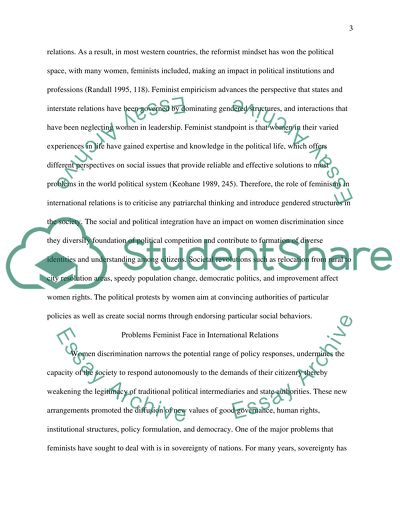Cite this document
(“Feminism and International Relations Essay Example | Topics and Well Written Essays - 2000 words”, n.d.)
Feminism and International Relations Essay Example | Topics and Well Written Essays - 2000 words. Retrieved from https://studentshare.org/history/1490959-what-problems-in-other-approaches-to-international
Feminism and International Relations Essay Example | Topics and Well Written Essays - 2000 words. Retrieved from https://studentshare.org/history/1490959-what-problems-in-other-approaches-to-international
(Feminism and International Relations Essay Example | Topics and Well Written Essays - 2000 Words)
Feminism and International Relations Essay Example | Topics and Well Written Essays - 2000 Words. https://studentshare.org/history/1490959-what-problems-in-other-approaches-to-international.
Feminism and International Relations Essay Example | Topics and Well Written Essays - 2000 Words. https://studentshare.org/history/1490959-what-problems-in-other-approaches-to-international.
“Feminism and International Relations Essay Example | Topics and Well Written Essays - 2000 Words”, n.d. https://studentshare.org/history/1490959-what-problems-in-other-approaches-to-international.


